When we had been asked by the organisers of the ‘Times Lit Fest’ to moderate a discussion with Mary Kom for a live audience at the Mehboob studio, we had agreed with alacrity
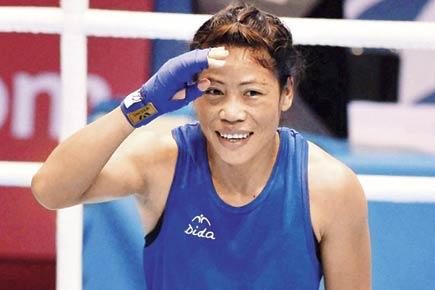
Mary Kom
 When we had been asked by the organisers of the ‘Times Lit Fest’ to moderate a discussion with Mary Kom for a live audience at the Mehboob studio, we had agreed with alacrity. After all, how often does one get to interview a real life champion? The assignment had meant that we had to undertake a fair amount of research on the sport star, as well as read her autobiography.
When we had been asked by the organisers of the ‘Times Lit Fest’ to moderate a discussion with Mary Kom for a live audience at the Mehboob studio, we had agreed with alacrity. After all, how often does one get to interview a real life champion? The assignment had meant that we had to undertake a fair amount of research on the sport star, as well as read her autobiography.
ADVERTISEMENT
But nothing had prepared us for Mary. Tiny and girlish, she had entered the auditorium shyly, accompanied by her mother, her husband and her newborn son. Such was her demeanour that throughout our session with her, we had felt protective towards the delicate looking boxing icon whose eyes kept searching the hall for her baby.
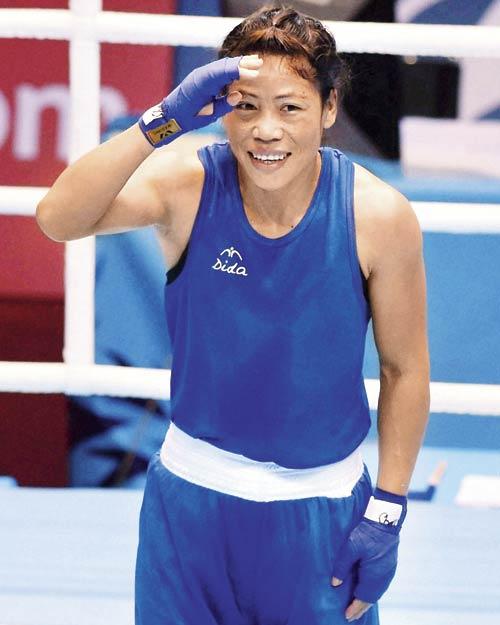
Mary Kom. Pic/PTI
It was only once towards the end of our Q&A when a female a member of the audience, had asked Kom for her views on rape and violence against women that we’d seen Kom fire. “You hit them back,” she’d said, her eyes aflame. “Use whatever means you have,” she’d said, raising her fists against an imaginary assaulter, “scratch with your nails, pull their eyes,” she’d said, “but always, you must fight back.”
We thought of this fondly when we heard about her triumph yesterday at the Asian Games. ‘Float like a butterfly, sting like a bee’ might as well have been written for her!
A bitter pill to swallow
On hearing that on the eve of Modi’s visit to the US, the government had instructed the National Pharmaceutical Pricing Authority (NPPA) to withdraw its recent guidelines on price control of 108 drugs used to treat life-threatening diseases like tuberculosis, AIDS, diabetes and heart ailments, we thought of our friend, Padma Bhushan awardee, Yusuf (Yuku) Hamied and how sad he must be.
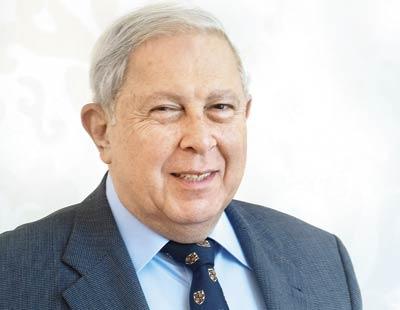
Yusuf Hamied. PIC/AFP
Because though Hamied heads one of India’s largest pharmaceutical companies, CIPLA, and would stand to make even more money out of this decision, his whole life’s mission has been to champion the cause of cheaper medicine for the afflicted and to ensure that these medicines would be accessible to those who need them.
“I don’t want to profit out of people’s misery, it is not right,” Hamied had said to us last month when we’d run into him on our evening constitutional; he was anticipating a policy change to coincide with the US visit. “To allow large populations to die because multinational Pharma companies want to profit is shameful!”
So today, on hearing that the price of an anti-cancer tablet has risen from R8,500 to R1.08 lakh, our thoughts go out to all the patients of these diseases who might not be able to afford them any more. And, of course, to Yusuf Hamied.
A man who stands apart from the pack for his principles of humanity. In my book, not only a true man of medicine-but a hero in the truest sense. And now to find out the reason why the price of these medicines was de-controlled. Not to make goody with American biz, we hope.
Terse advisory
“Fareed Zakaria worked for Newsweek when it was under previous ownership. Readers are advised that some of his articles have been the subject of complaints claiming that they contain material that should have been attributed to others,” said the terse advisory, in what could be called the last nail in the credibility of Mumbai-born and raised Fareed Zakaria, CNN host and columnist for The Washington Post.
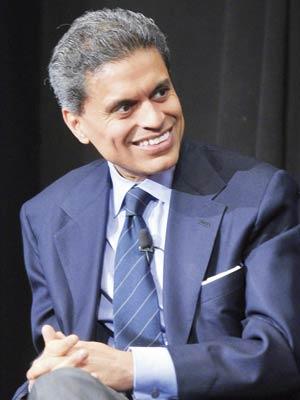
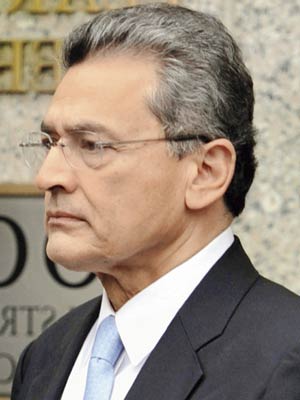
Fareed Zakaria and Rajat Gupta. Pic/AFP
For months, the media maven had been under a cloud as accusations of plagiarism had mounted. However, such had been his standing that both the media houses have staunchly defended him. Newsweek’s biting of the bullet by its unprecedented decision to carry this advisory about its former correspondent and editor is a damning indictment.
After all, Zakaria, like McKinsey’s Rajat Gupta was the poster boy of the Indian diaspora! Meanwhile for Zakaria’s many friends and fans in Mumbai, one can only hope that the accusations he’s facing are proved untrue.
Stinging riposte to the Economist
“This story is not about defending Modi. If it were Dr MM Singh, we would have written it too,” says our friend, noted journalist Padma Rao, foreign correspondent of the recently launched Swarajya described as ‘the new mag-first web then print-for right liberals, to put an end to chattering discourse from bleeding heart sentimentalist entirely impractical jabberers who call themselves ‘left wing’ and ‘secular’.’
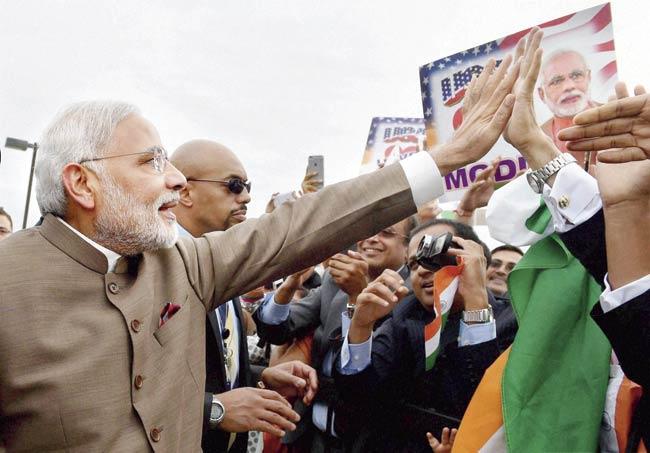
Narendra Modi in USA. Pic/PTI
She was referring to the magazine’s stinging riposte in the form of an editorial on the highly critical column in the Economist that its correspondent, Patrick Foulis had written on Modi’s US sojourn. Foulis had, amongst other things, sneeringly alluded to the Modi wave as ‘a pain in the ass’ and referred to India as a ‘continent-sized embarrassment.’
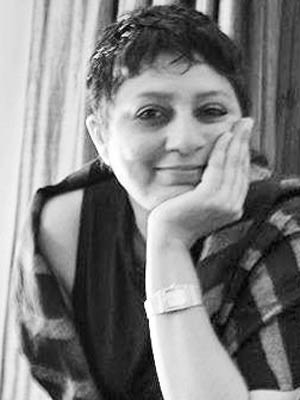

Padma Rao and Sandipan Deb
In its editorial Swarajya, edited by Sandipan Deb had said, “Foreign correspondents who live in India on Euro-strong salaries (exchanging stuffy apartments in say, Tunbridge Wells for palatial mansions with gardens and butlers serving them sundowners), cannot reconcile themselves to the fact that Manhattan traffic, instead of parting for them like the Red Sea for Moses is doing so for a mere Indian.”
“It was about defending India against tiresomely un-researched slander from a foreign correspondent,” said Rao, who had contributed to the editorial along with her colleagues. Interestingly, after the outrage over the ‘pain in the ass’ reference, the Economist had clarified, “The Economist does not consider Mr Modi to be a ‘pain in the ass’; that epithet is merely how we imagined an uninformed New Yorker might feel about someone who causes a traffic jam.’ No kidding!
 Subscribe today by clicking the link and stay updated with the latest news!" Click here!
Subscribe today by clicking the link and stay updated with the latest news!" Click here!






